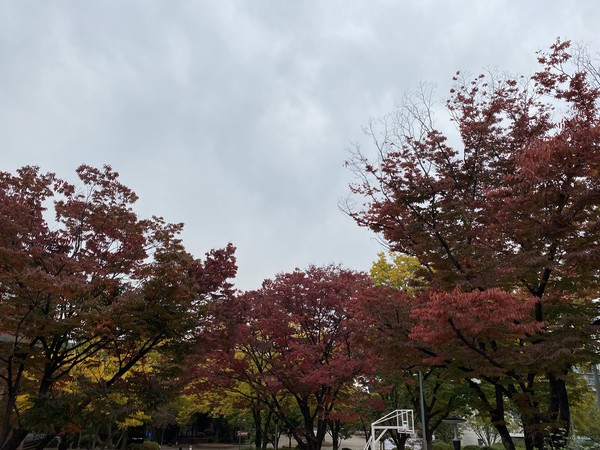Photologue @theuostimes7
When people watch the weather forecast, they used to hear the word ‘wu-su(rainwater in English)’, ‘gyeong-chip(awakening of insects in English), or ‘ip-chu(start of autumn in English). These words represent one of the 24 solar terms. The solar term was made in order to make a seasonal distinction following the location of the sun’s ecliptic, and also it refers to the detailed division of the solar year into 24 solar terms in East Asia, depending on the environment of the sun. Thus, each solar term has its own meaning. For instance, Gyeong-chip means the awakening of insects, and dae-han means major cold.
Recently, people may experience ‘hallo(cold dew in English)’, and ‘sang-gang(frost descent in English). Perhaps due to these solar terms, they can feel the chilly weather in the morning and evening as they enter October. Hallo is the 17th of the 24 solar terms and is around Oct. 8 to 9 in the solar calendar and sang-gang is the 18th and is around Oct. 23. Around the time of hallo, the harvest must be finished before the temperature drops further. Thus, threshing is in full swing in rural areas to harvest grains and fruits. Furthermore, the harvest should be completed no later than the sang-gang period because crops can be damaged by frost due during the period. Like this, in traditional agrarian societies such as Korea, climate change due to natural phenomena was very important to farming and had to be accurate. Therefore, the so-called 24 solar terms using solar power are being used. Why don’t we enjoy the autumn of Korea by understanding the characteristics of the solar terms?

https://www.instagram.com/p/CHHiqqsDoqe/?utm_source=ig_web_copy_link

